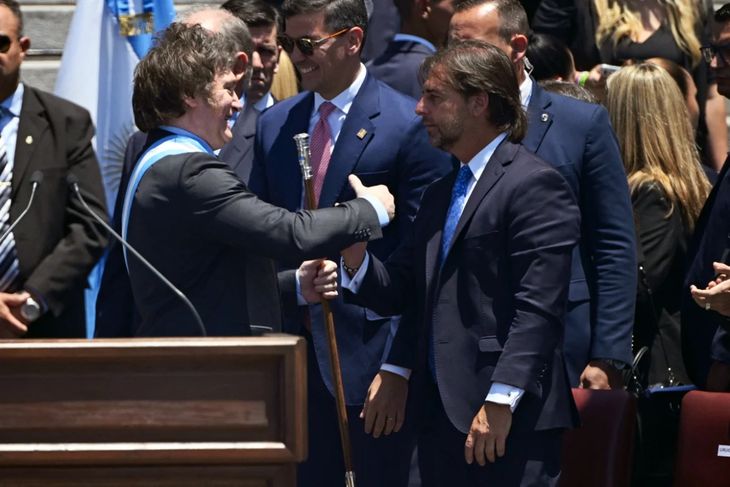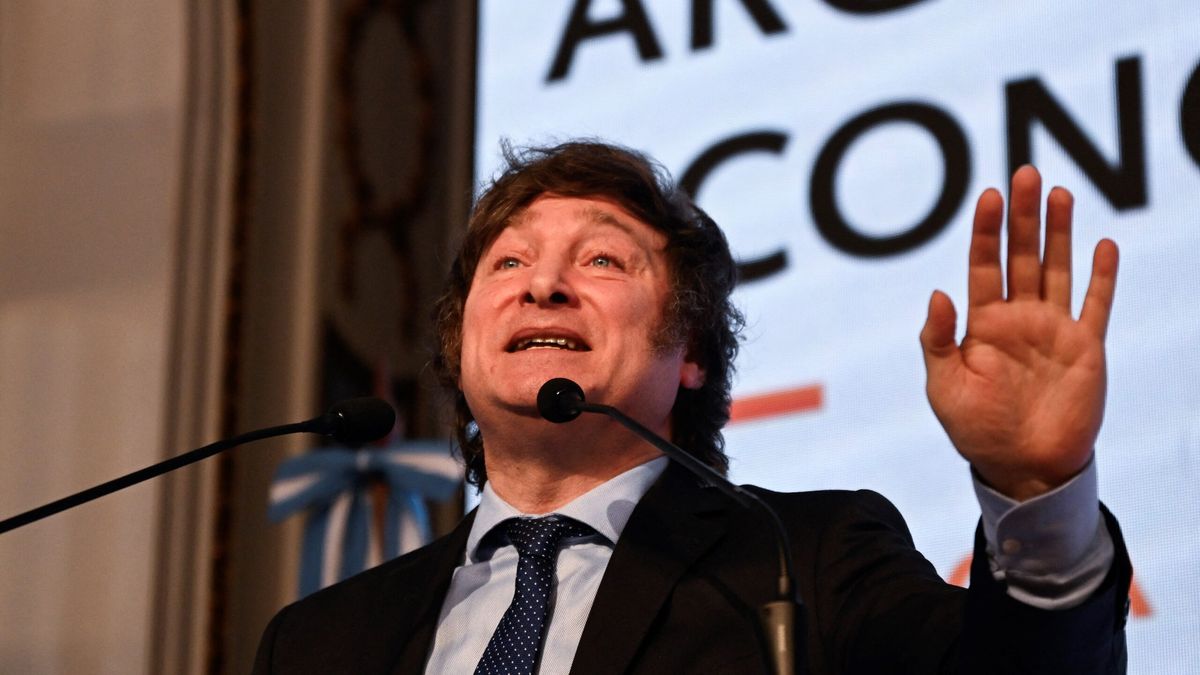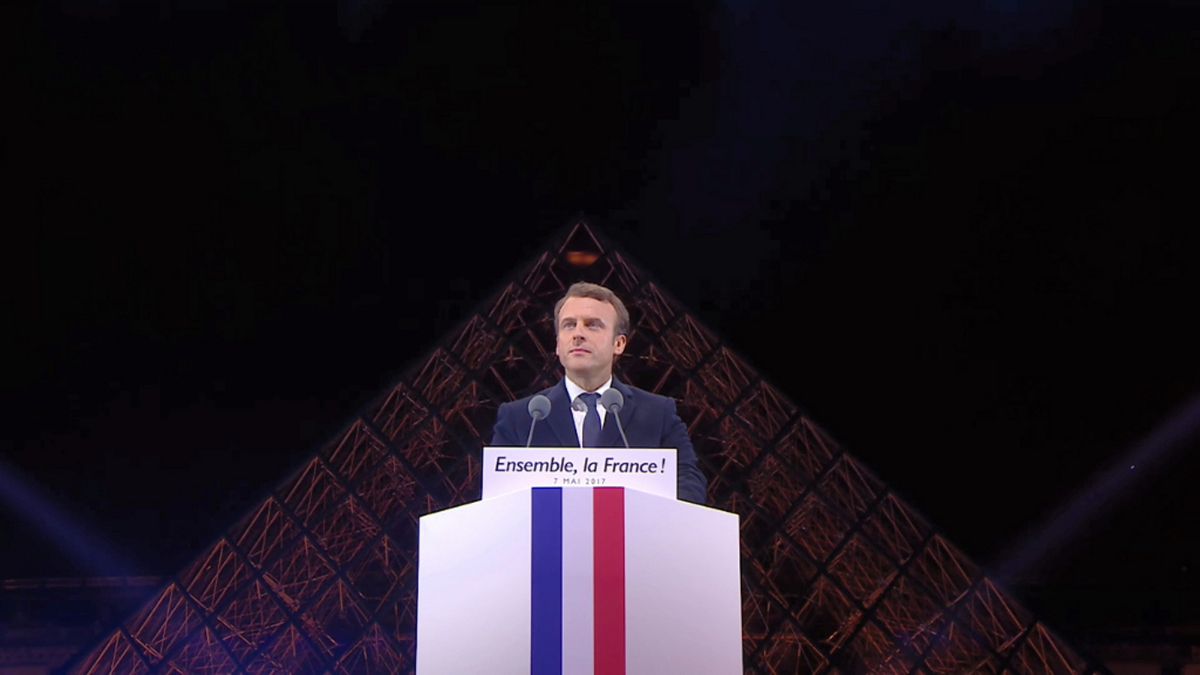Javier Milei burst onto the political scene Argentina meteorically and, after his first days as president, he managed to focus the eyes of much of the world on his management, to the point that he inspired the creation of the Libertarian Party of Uruguay(PLU), so it is worth asking: could there be a similar phenomenon in the country?
Despite the authorization of the PLU to compete in the elections 2024 and the approval of some sectors and even political leaders towards the ideas of Milei, Analysts agree that it will be difficult for a figure of this style to emerge in the local electoral campaign.
He president of the Center for Development Studies (CED), Hernán Bonilla, went further and expressed in dialogue with Ambit that such radical candidates “are alien to the Uruguayan politics And he even admitted that he does not see “a great demand in the electorate”, despite which he expressed himself in favor of “having liberal ideas on the table in the campaign.”
In contrast, the political scientist Mauro Casa, was against the “paradigm of exceptionality in Uruguayan politics”, remembering that “political styles and ideas have traveled since the world was the world.” Although he recognized the ability of Javier Milei to “impose the topic of discussion,” he anticipated that there will not be a leader who emulates those ideas in the elections 2024.
Libertarian Party of Uruguay.jpg
The Libertarian Party of Uruguay is qualified for the 2024 elections.
There is currently no room for a Uruguayan Javier Milei
The founder of the CED referred to an eventual landing of a libertarian leader for the elections this year and stated: “I don’t see room for a figure of the style to emerge or the proposals of Milei or that it is similar neither in form nor in substance.”
Bonilla pointed out that “this responds to a more Uruguayan logic,” highlighting that “the main parties are established parties.” “The National Party and the Colorado Party They have more than 180 years of life and more than 50 “Broad Front”he recalled and described them as “broad-based, which prevents them from becoming radicalized.”
“I don’t see candidates of that style and with the radicalism of eliminating the Central bank, dollarize or go out with the chainsaw. That is foreign to Uruguayan political culture. At least until now,” summarized the professor of Uruguayan Economy and Society at the ORT University.
At the same time, he considered that this proposal would not have a deep impact on society either. “I don’t see a demand in the Uruguayan electorate for candidates of that style. It might have a niche, but not a huge demand,” he observed.
Despite this, Bonilla pointed out that “probably Uruguay I would need the campaign to have liberal ideas on the table”, and then conclude: “We need to make significant progress in terms of economic freedom and it would be good if there were proposals of this style.”
Presidents Javier Milei Luis Lacalle Pou

Photo: AFP
Questioning “exceptionality in Uruguayan politics”
Mauro Casa, master at the London School of Economics in the United Kingdom, preferred to analyze the phenomenon from another perspective and not rule out a similar phenomenon in the Uruguay, although he warned that it is not likely in the short term. “I tend to distrust the paradigm of exceptionality in Uruguayan politics, that processes of instability, radicalization or polarization tend not to happen or do so in a more cushioned way by institutions and political culture,” confided the political scientist.
According to House, “Sometimes we analysts are arrogant in thinking that these things are not going to happen because we are different,” emphasizing that “political styles and ideas have traveled since the world was the world, as has happened with the socialism and the communism In the 20th century, the authoritarianisms In Latin America, the dictatorships in the 60s and 70s and even at the end of the 20th century and beginning of the 21st we had a wave of leftist governments, center-left or popular with similar policies.”
Specifically about the figure of Javier Milei, recalled that “in the last decade there was a strong power of certain extreme right speeches or radical neopopulisms, with culminating points such as donald trump in 2016 and Jair Bolsonaro in 2018.”
“In this context of the greening of new rights, Milei’s case is a paradigmatic case because Argentina “It is not a minor country, but one of greater global relevance due to its economy, size and cultural and political significance.” “It has made certain ideas that were very marginal at a political, academic and social level, become reasonable from one moment to the next and when you manage to impose the topic of discussion, you won half. It is an enormous achievement,” he highlighted.
Can Milei influence Uruguayan politics?
Casa indicated that “Milei takes over the agenda of Argentina and part of Uruguay”, but he does not see a turnaround in the short term. “This is not going to become a proposal from a political party or a libertarian candidacy for the elections 2024 ”, he observed and compared: “A Libertarian Party, but I don’t see any greater chances of entering the Parliament and much less contest the presidency.”
On the other hand, he conditioned that possibility to the success or failure of the Argentine president: “We have to see how his government develops because if he begins to achieve success, especially to combat the economic crisis, there will be those who will look with different eyes and with different respect.” that experience.”
In that case, he considered that “it can generate inspiration in politicians from the Uruguayan right or center-right, such as the National Party, he Colorado Party either Town meeting, Let them take some ideas from Milei.” However, he compared the situations and maintained that “Uruguay is not experiencing a crisis and in moments of relative tranquility, it is not the most favorable breeding ground for them to appear outsiders”.
Source: Ambito




